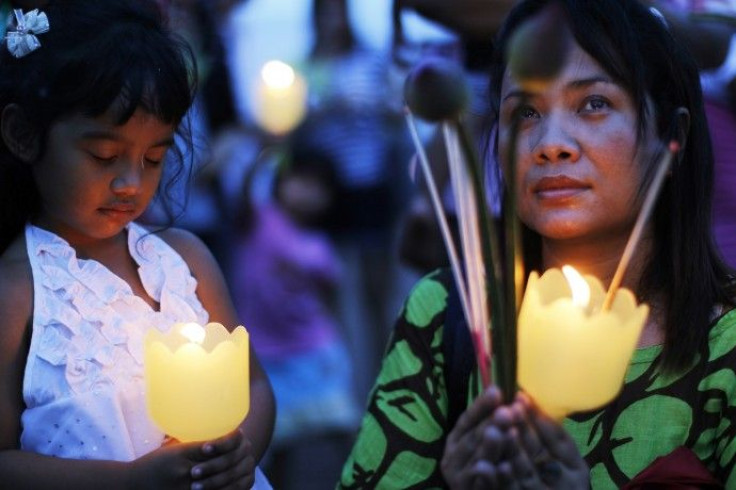When 'foetuses' speak in Thailand

In Bangkok, on Sunday, a debate was brewing as scores of people gathered to condole the death of more than 2,000 young souls. They placed milk, baby clothes and toys at the morgue of a Buddhist temple where foetuses were found hidden in plastic bags last week. The morgue at the now detested Wat Phai Ngern, is to be demolished next week after a cleansing ritual.
The two undertakers charged for concealing the fetuses, Suchart Phoome and Suthep Chabangbon, admitted to the crime and stated it was purely out of necessity. At the trial, they maintained that they alone should not be condemned.
If anyone was to be blamed for this, it must be the parents of the aborted babies and people who performed the abortions, they said.
Thailand, the traditionally orthodox Buddhist country, had ruled out abortion on morals grounds with a rationale that their beliefs prohibit all kinds of killing. But, pressure is mounting on the ruling Democrat party government, even as they announced a crackdown on illegal abortion centers. Sections of media and activists have been calling for amendments in abortion laws across the country.
On Sunday, Democrat Party members at the House of Representatives have announced that they will submit a draft law on legal abortion. The Thai News Agency MCOT reported that Satit Pitutacha, an administrative committee member of the Party along with fellow MPs will put forward the draft law for debate during the next Lower House session.
If approved, the new law would allow an unprepared mother or parents to undertake an abortion, by setting up an agency to screen the unprepared requesting mother for an abortion. Applicants must register before receiving an abortion, Satit told the news agency.
According to the current Thai law women could face up to three years of imprisonment if they go for abortion. A maximum sentence of seven years is served for those who perform abortions. In cases where abortion causes death, the person would have to face a sentence of 20 years. Only victims of rape and women with health issues are exempted from punishment.
The Bangkok Post reported that on his weekly broadcast Sunday, Prime Minister, Abhisit Vejjajiva, acknowledged that unwanted pregnancies have become increasingly common in the country. But opposing the rather liberal view on the issue, he stated that the current laws are sufficient to deal with abortion issues.
The existing laws are appropriate and flexible enough and there is no need to amend them or add new laws but it is important that children and youths are educated in this area through campaigning, he said.
Nonetheless, falling short of changing the law could drive the government into trouble. Last week angry readers took to criticizing the government in newspaper columns. Some said a crackdown on the illegal abortion centers would not be able to contain the crime. Others attributed the Wat Phai Ngern incident to the indictment of the abortion laws in the country.
The world has changed but apparently Thai law hasn't, an opinion read in the Bangkok Post on Sunday. But with the public discontent surging, it seems the country is braced for a change in its perspective over abortion.
© Copyright IBTimes 2024. All rights reserved.











